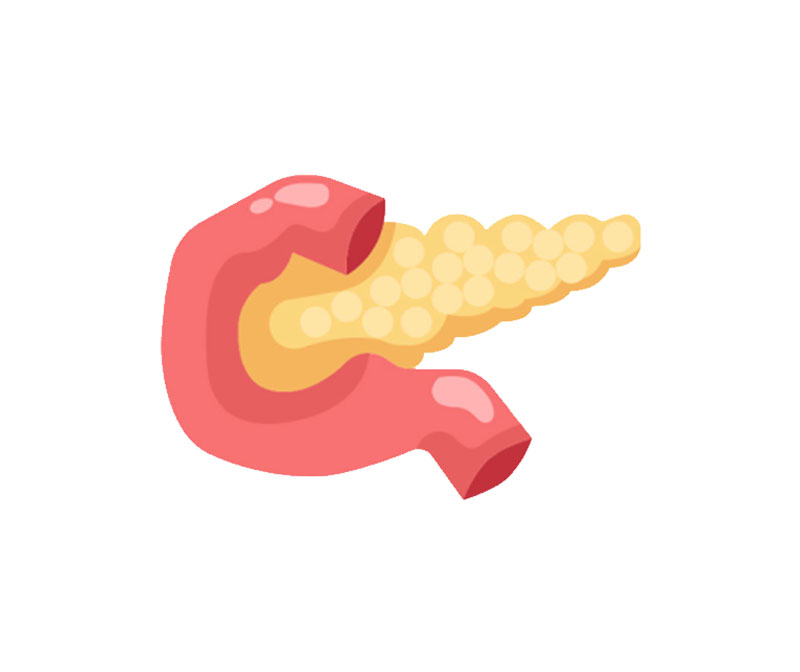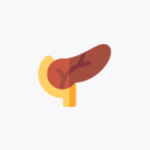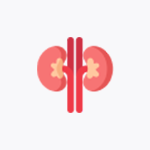Pancreas Transplant in Thane
A pancreas transplant is a surgical method performed to replace a pancreas that is not working correctly with a healthy pancreas from a deceased donor. Most pancreas transplants are done for patients with type I diabetes. This offers a potential cure for a patient with this condition. However, a pancreas transplant is usually reserved for patients with severe complications of diabetes because the side effects of this transplant can be significant.

Looking for the Pancreas Transplant in Thane
Need for Pancreas Transplant
Various ailments may affect the functioning of the pancreas and may generate a need for pancreas transplants. Although the pancreas transplant offers a potential cure for patients with type I diabetes, the side effects of anti-rejection medications needed post-transplant must outweigh the benefits of getting the transplant. Usually, for a patient suffering from one or more of the below-mentioned conditions, a pancreas transplant is considered a viable option. Some of the similar conditions are listed below:
- Type I diabetes which is not controlled with regular treatment
- Type II diabetes associated with both low insulin production and low insulin resistance
- Very poor blood sugar control
- Frequent severe insulin reactions
- Hypoglycaemia unawareness
- Severe kidney damage
Type of Pancreas Transplant
There are different ways in which pancreas transplant is performed depending upon the situation and conditions from which patient is suffering. Below are some of the conditions which may require you to go for pancreatic transplant:

Pancreatic transplant alone:
Patients of diabetes and early or no kidney disease may be a candidate of pancreas transplant alone.

Combined kidney-pancreas transplant:
Surgeons may often consider performing kidney-pancreas transplants for patients with diabetes who have or are at high risk of kidney failure. Most pancreas transplants are performed at the same time as a kidney transplant. The main goal of this approach is to give the patient a healthy pancreas and kidney that are not likely to contribute to diabetes-related kidney damage in the future.

Pancreas-after-kidney transplant:
For patients waiting since long for both a donor pancreas and kidney to become available, a kidney transplant may be suggested first if a living- or deceased-donor kidney becomes available. After your kidney transplant is done, you'll receive a pancreas transplant once a donor pancreas becomes available.

Pancreatic islet cell transplant:
During this transplant procedure, insulin-producing cells (islet cells) taken from a donor's pancreas and injected into a vein that takes blood to the liver. More than one injection of transplanted islet cells may be needed.
Costs
Stay at Hospital
Back to work
Waiting Period
Sometimes, it can be challenging to find a donor within a short period. Pancreas is usually taken from a person who has been declared as brain-dead but remains on a life-support system. The donor needs to meet the transplant criteria like being healthy and being of a specific age. The donor’s organ also needs to match the recipient immunologically with the recipient’s body. This is crucial to reduce the risk of organ rejection.
Sometimes, the pancreas is taken from a living donor. This usually happens when the transplant recipient can find a donor who is a twin or a close relative. In such cases, donors give a part of their pancreas and not the whole organ.
While you are on a waiting list to find a suitable donor, you have to take few adequate measures to take care of yourself by practicing:
- Regularly visiting the doctor for check-ups and follow-ups.
- Have a healthy balanced diet.
- Take all prescribed medicine on time.
- Indulge in some form of physical activity as per the doctor’s recommendation
- Avoid smoking and consuming alcohol.

Do You Have Any Query
Please fill out the form & our representative will contact you within 24hrs.
















 View Map
View Map Book an Appointment
Book an Appointment Find a Doctor
Find a Doctor Health Check-up
Health Check-up



 Find a Doctor
Find a Doctor Health Checkup
Health Checkup Book an Appointment
Book an Appointment